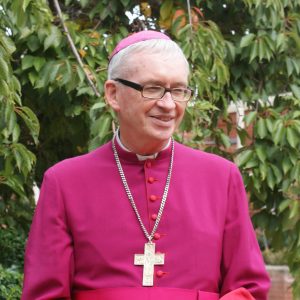In the early fourth century, a senior priest in the great university city of Alexandria in Egypt began to preach a message that almost tore the Church apart.

Auckland Bishop Patrick Dunn
Arius was perplexed by the mystery of Christmas, and could only make sense of what happened at Bethlehem by claiming that Jesus could not have actually been God. He taught that Jesus was the most wonderful of all created beings, but he was “created”, and so there was a time when the Father existed and the Son did not.
Arius was a convincing teacher, and soon had attracted many followers, including scholars and political leaders. But others, including many everyday Catholics, began to sense that what Arius was teaching was not
actually the faith that they had received from the apostles.
The thought that Jesus was simply a great religious teacher is still commonplace today, even though the views of Arius were rejected at the Council of Nicaea, which met in the year 325. That council produced the Nicene Creed, which we pray aloud at Mass most Sundays, reminding ourselves that Jesus was “begotten
but not made”, that he is the Son [begotten], but not just another created being like the rest of us.
He is “consubstantial with the Father”, and “through him all things were made”.
The fact that Jesus is truly Emmanuel, God-among-us, is what makes the Christmas story such a
cause for celebration.
“The Maker of the stars and sea, become a child on earth for me” is how Sir John Betjeman puts it in
his Christmas poem. We must not allow the modern day followers of Arius to blur this amazing truth
for us.
Christmas every year reminds us that, for all the troubles and challenges of the past year, and there have been many, it is still true that God loves us so much he sent his only Son, and he invites us to share life eternally in all its fullness as his sons and daughters.
Have a wonderful Christmas, and a happy New Year.
— Bishop Patrick Dunn
Reader Interactions